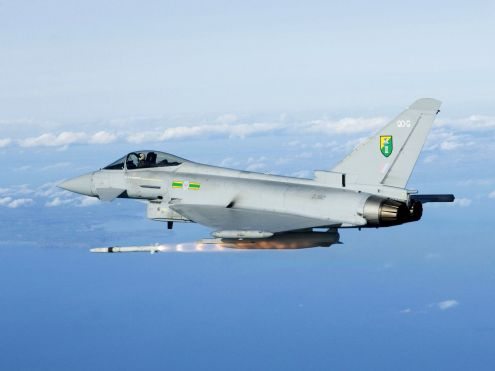In Europe, some of the most dangerous effects of the 2008 financial and economic crisis have not yet been fully understood. For almost three years, the focus has been on the financial sector, the job market, and the stability of the euro. These were the areas where the immediate effects of the crisis were most damaging and where systemic stability was at stake.
Due to massive state intervention, the system did not collapse; and where it crumbled, further state intervention has, so far, prevented worse outcomes. However, any such state intervention comes at a price. In part that price is clear, and in part it is hidden. This Outlook examines the effects of the economic crisis on European defenses.
Key points in this Outlook:
- Europe’s financial and economic crisis is leading to further defense cuts and much-diminished defense capabilities.
- Case studies of European states–Germany, France, the United Kingdom, Poland, and Sweden–suggest the need for greater defense cooperation and pooling of military resources among European states.
- However, Europe cannot “pool and share” its way out of the fact that it spends too little on defense.
- Europe’s leaders need to do a better job of convincing their publics that a credible military capability is needed to defend the international order that Europe depends on and benefits from.
In the obvious sense, the price of state intervention refers to the actual price tag attached to the various stimulus packages scrambled together by European governments. This massive spending and the simultaneous loss of revenue have created historic budget deficits and debt. The hidden price comes in many forms–citizens’ diminished trust in the capitalist system or, particularly in Germany, increased wariness about the European Union (EU) principle of economic solidarity. In turn, deficit and debt force governments to cut the budget significantly.
In almost all European states, as in the United States, the defense budget is being used as a convenient quarry for saving money, exactly because the adverse effects of cutting defense are (hopefully) long-term and quite abstract–and therefore also hidden. As a consequence, many European states are on the verge of losing even basic defense capabilities, despite painful reform efforts to make their militaries more efficient.
Unfortunately, this is happening at a time in global politics when the traditional guarantor of European security, the United States, is struggling with its own budget crisis and problems of military overstretch, and it is therefore urging Europeans to take on a greater share of the burden of their own defense. As then-secretary of defense Robert Gates made clear in his speech on the future of the North Atlantic Treaty Organization (NATO) in Brussels on June 10, the transatlantic partnership has turned into a “two-tiered alliance” composed of those “willing and able to pay the price and bear the burdens of alliance commitments, and those who enjoy the benefits of NATO membership . . . but don’t want to share the risks and the costs.”
Thus, at least for Europe, the financial and economic crisis is about to pave the way for an even more dangerous security crisis.
This Outlook gives an overview of how the EU and various European countries have responded to that challenge. Needless to say in dealing with defense issues, I focus on hard power alone, neglecting the popular European misconception that security can be achieved by development aid, economic interdependence, and diplomacy. In the final analysis, military capability remains the backbone of all credible security arrangements.
Thus, I first provide brief sketches of the situation in five major European states (Germany, France, the United Kingdom [UK], Poland, and Sweden) and analyze how their current defense policies relate to the EU.
Second, I outline the key strategic concepts on the EU level for how to cope with the twin imperatives of budget consolidation and maintaining or creating an effective defense.
I conclude by pointing out the central problems of the current approaches and give three specific recommendations for how to fix them.
State of National Defense: Five Sketches
The European economies were hit hard by the crisis. Although Europe’s economic powerhouses, most notably Germany, are recovering quickly, it took most of the EU states longer to regain sure footing than it took rising economic powers such as Brazil and China. In fact, some EU member countries, such as Greece, Spain, and Ireland, are still in the throes of severe crisis. And even a generally strong country like Germany has amassed a national debt of approximately 75 percent of gross domestic product (GDP) (compared with, for instance, the United States at 93 percent, France at 84 percent, and China at 19 percent).
As a result, all European countries face significant pressure to reduce their budgets. However, defense budget cuts hurt Europe even more than they hurt the United States because Europeans start cutting at a much lower, even existential level. As NATO Secretary General Anders Fogh Rasmussen put it, “There is a point where you no longer cut fat; you’re cutting into muscle, and then into bone.”
A closer look at five major European states–Germany, France, the UK, Poland, and Sweden–reveals what this means for defense capabilities. Given the limited scope of this Outlook, the sketches of the individual defense budgets, military reforms, and future postures necessarily remain brief but nonetheless demonstrate current, worrisome trends in European defense. A concise assessment of these developments and suggestions for improvement is given in the conclusion.
[Download not found]










